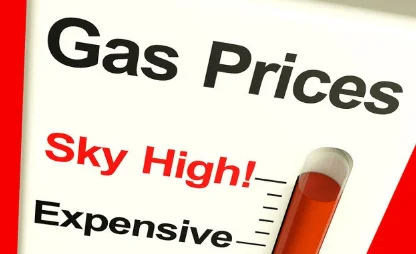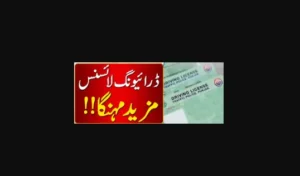Pakistan Facing Steep Natural Gas Tariff Hike of Over 137%.
Pakistan Braces for Steep Gas Price Hike: SNGPL Proposes 137% Increase, Raising Concerns for Household Budgets
In a move that could significantly impact household expenses, the Sui Northern Gas Pipelines Limited (SNGPL) has petitioned the Oil and Gas Regulatory Authority (OGRA) for a staggering 137.62% increase in natural gas tariffs.
If approved, the proposed hike would catapult the price of gas from the current Rs1,246.49 per mmbtu (million metric British thermal units) to a whopping Rs2,961.98 per mmbtu, effective July 1, 2023.
Read More: Gas Bills to Skyrocket: OGRA Notifies New Gas Prices
SNGPL has cited an estimated revenue shortfall of Rs181.516 billion for the financial year 2023-24 as the primary reason behind the proposed tariff hike. The company has attributed the shortfall to a combination of factors, including:
- Arrears: Unpaid gas bills amounting to Rs40.324 billion
- Rupee Devaluation: The depreciation of the Pakistani rupee against the US dollar has increased the cost of imported gas, necessitating an additional Rs56.48 per mmbtu to cover the difference.
To address the revenue shortfall, SNGPL has requested an increase of Rs1,246.49 per mmbtu to cover arrears and an additional Rs56.48 per mmbtu to account for rupee devaluation.
Read More: LPG Prices Decreased by Rs.10: OGRA Announced
OGRA, the regulatory authority responsible for overseeing the oil and gas sector, is scheduled to conduct a hearing on the petition on December 11.
The decision on the proposed tariff hike is expected to have a significant impact on domestic gas consumers, as it would translate into higher gas bills.
Gas Price Hike: Pakistan Facing Steep Natural Gas Tariff Hike of Over 137%
- Current Tariff: Rs1,246.49 per mmbtu
- Proposed Increase: Rs1,715 per mmbtu
- New Tariff: Rs2,961.98 per mmbtu
- Effective Date: July 1, 2023
It is worth noting that this proposed tariff hike comes on the heels of a recent decision by the National Electric Power Regulatory Authority (NEPRA) to increase electricity tariffs by Rs3.07 per unit.
The combined effect of these tariff increases is likely to put a strain on household budgets and could further fuel inflation concerns.
Read More: Electricity Overbilling Affects Millions: NEPRA
Consumers are advised to be mindful of their gas usage to mitigate the impact of these tariff hikes. Energy-efficiency measures, such as switching to gas-saving appliances and adopting energy-conscious cooking practices, can help reduce gas consumption and potentially lower gas bills.
Pakistan Facing Steep Natural Gas Tariff Hike of Over 137%
Note: The information above might not be accepted 100%. Please verify from your own sources. We will not be responsible for any kind of loss due to our content.
For more news, please visit Munafa Marketing.




